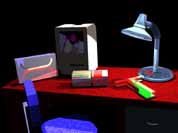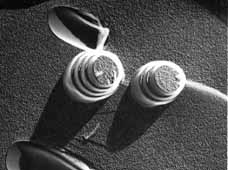
Bioengineering Department, Box 355061, University of Washington, Seattle, WA 98195, USA

 |
Bioengineering Department, Box 355061, University of Washington, Seattle, WA 98195, USA |
 |
The following are classes currently taught by Yager at UW. Interested students should call the Department of Bioengineering at 685-2022 for entry codes, but call PY if there are questions about eligibility. Note that the attached syllabi are for PAST versions of the classes; current versions of the classes will be different.
Preparation for the Senior Capstone Research
Project
Bioengineering 480B Spring quarters Click here for a recent course description and syllabus |
This is an undergraduate course targeted specifically at juniors in the Department of Bioengineering. There are two goals for this course: the first is to ensure that all students are affiliated with a research laboratory and launched on their senior capstone project (480A) by the end of the quarter. Students will be coached in skills needed to find, enter, and stay in a laboratory, and to accomplish their research projects efficiently. They will also be graded on tasks needed to accomplish this goal. The second aim is to instill in the students the importance of understanding the context of their work with respect to their colleagues, their peers, their society, and their world. This latter aim is accomplished through 1) reading and discussion of science fiction books and stories that include themes related to bioengineering, 2) active monitoring of news media for bioengineering-related stories, and 3) learning about the issues related to professional activity beyond college. They will be graded on their ability to process and communicate ideas on these latter topics. |
|
Bioengineering 573A Offered every other year Click here for a recent course description and syllabus |
A graduate level course (open to qualified undergraduates) designed to give students an in-depth acquaintance with the growing and complex field of biosensors. The material covered will familiarize the students with the sensors currently in use or under development, how they operate, and under what circumstances they can be useful. Emphasis will be given to critical comparison of different sensor modalities and how their limitations in realistic applications suggest the selection of one type of sensor over another. New material this year will include DNA probe technologies and microfluidic chemical analytical systems. |
Bioengineering 578 Offered every other year Click here for a recent course description and syllabus |
This is a graduate course (open to qualified undergraduates), the focus of which is developing an understanding of the molecular principles that underlie the self-assembly of surfactants into natural and model biomembranes--in particular on the relationship between the chemical structure of lipid molecules and the three dimensional aggregates that they form in water. |
|
Bioengineering 599C (lecture) & 599D (lab) Offered alternate winters Click here for a recent course description and syllabus |
This course is aimed at preparing graduate students to use 2- and 3-dimensional structures with features between 1 mm and 0.1 µm in their research with biomaterials complex liquids. (It may also be taken by advanced undergraduates with advance permission of the instructor.) It is best taken as part of a two-quarter sequence beginning with EE539 Introduction to Micro Electro Mechanical Systems (MEMS) taught by Böhringer, which focuses on "dry" MEMS devices. However, EE539 is not a prerequisite. This course focuses on those aspects of microfabrication that are best suited to micropatterning of surfaces, BioMEMS, and microfluidic chemical analytical systems. Initial material reviews microelectromechanical systems (MEMS), fabrication techniques, microfluidic chemical analytical systems, and "soft lithography" through lectures and discussion of current literature. The 3 credit lecture course is open. The companion 1 credit companion laboratory course project is limited to 7 students. The purpose of the laboratory course is to learn (hands on!) how to prepare devices that will be immediately useful in the student's research. In the lab students will make etched silicon microstructures (or SU-8 structures, depending on shape requirements) to prepare polymeric replicas for use in micropatterning, micromolding or microfluidics. |
|
Return to Yager's Home Page
|